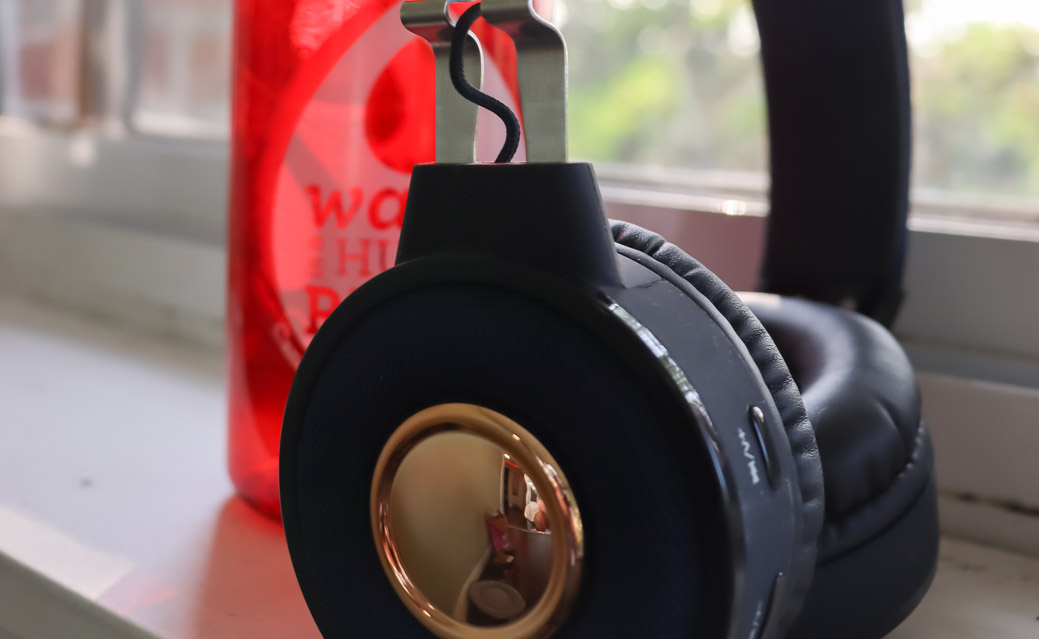Music therapy: the benefits of music and why it makes us feel good
Listening to music can be a treatment that boosts well-being.
A bop, a jam, a banger, a tune—no matter what you call it, there’s no denying this near-universal truth: we all love music. Whether you prefer listening to heavy metal, or soft, smooth classical music, there’s something out there for everyone. But have you ever wondered why we love music so much, or why it makes us feel so good?
There could be many reasons as to why humans have a strong emotional response to music. A possible answer may lie within the chemicals of the brain. In a study published in Nature Neuroscience, researchers found that dopamine—a feel-good chemical—is released in our brains while listening to music.
Dopamine, a hormone that is also responsible for sleep, mood, and memory, is what signals the brain that we’re having a good time. It’s what makes our brains go “yes please, more of this” when we eat our favourite food or watch a well-loved movie. Hearing an opening theme song is enough to raise levels of dopamine. This can help explain why humans love music.
Music is made up of patterns; a series of melodies and rhythms blended into a song where—consciously or unconsciously—we can predict what’s coming next. It’s why we tend to have favourite artists and genres: we know what we like, and we like to hear it. As the song builds to a crescendo, so does our emotional response, and the dopamine we receive at the peak encourages us to keep listening.
Is this why music is so enduring across so many cultures? And how can we use music to help us?
Music therapy, a form of treatment wherein a qualified music therapist uses music and their own skills as a therapist to help a client satisfy a need or achieve their own individualized goals, may be our answer. Dr. Amy Clements-Cortes of the University of Toronto Faculty of Music, whose research has spanned music, health, and wellness across many different areas, gives an insight into music therapy. “[Music] can be a cognitive need, a physical need, a spiritual need, an emotional need,” explains Dr. Clements-Cortes. “Music therapists work very holistically.”
Music therapy is not age restricted. It can be a treatment for anyone—from premature infants to those in end-of-life or palliative care. The flexibility of music therapy is another benefit. Treatment can be finely tuned to be most effective for each client. Sessions include movement in time to a beat, playing an instrument, listening to meaningful or evocative music, writing songs, or singing.
“When [patients experience] heavy emotions or difficult feelings, music offers a different way of expressing or exploring them,” adds Dr. Clements-Cortes. For those who may not be comfortable verbalizing their emotions or difficult experiences, engaging with music can be a helpful stepping-stone.
People with dementia benefit greatly from music therapy, according to Dr. Clements-Cortes. To them, music can be a way of evoking memories or fostering a connection to their identity through cultural music or songs from their youth. Music can also reshape our brains, with new pathways forming in different regions, which is highly beneficial for those who have suffered traumatic brain injuries. Music therapy can help victims relearn motor and verbal skills as well.
Part of being a music therapist, other than needing a formal knowledge of music, is having the ability to improvise. Therapists must be able to provide their patients with music that will be most helpful to them or be able to help them create it on their own.
Singing also holds enormous benefits, which can start before birth—such as mothers talking or singing to their baby in the womb. “Singing really creates bonding and attachment early in life. [Parents] are really encouraged to sing to their babies,” says Dr. Clements-Cortes. As we get older, singing continues to be beneficial to development as it helps us learn concepts. We’ve all sung the ABCs, and most children sing good morning and good night songs in school.
In her own studies with older patients, Dr. Clements-Cortes has seen great benefits from singing. In one study, she found that when patients with dementia take part in weekly choir, their anxiety and pain decreased while their mood and energy increased. They also felt a stronger sense of bonding with others. “Singing fosters this sense of connecting and being more aware of others in the space,” states Dr. Clements-Cortes.
This affirms the findings of another study published in Evolution and Human Behaviour, which found that children who made music together showed an increase in “spontaneous cooperative and helpful behaviour.” In other words, music-making awarded a tactile representation of shared goals and cooperation. So, how can we use music for our own health and wellness?
Dr. Clements-Cortes recommends taking daily music breaks: “I encourage people to create a playlist that is purposeful. A playlist that is set for a specific amount of time, and a specific purpose,” she says. “Whether it’s to pump yourself up for a workout or wind down after a long day, having just a five-minute music break is enough to reap the benefits.”
Music breaks can be a good alternative for those who may not have access to music therapy, which is an issue in the field according to Dr. Clements-Cortes. Because the music therapy industry does not receive financial support from the government and is not reimbursed by insurance, people who could benefit from it are not able to utilize it. “We need more sponsorship or government funding to be able to provide [music therapy] for more people.”
Music is far more beneficial than many of us realize. Whether you’re dealing with the stress of university life, or managing your physical or mental health, music is a great way to take care of your well-being.
Staff Writer (Volume 48 & 49) — Hema is currently in her final year, finishing a double major in Linguistics and French Language Teaching and Learning. She previously served as a Staff Writer for Volume 48 of The Medium. Her favourite part of writing is the opportunity to research new topics, speak to new people, and make her voice heard, and she hopes that her articles can spark this interest in other students. In her spare time, you can find her in bed reading with a cup of coffee (and she's always looking for more book recommendations!).


